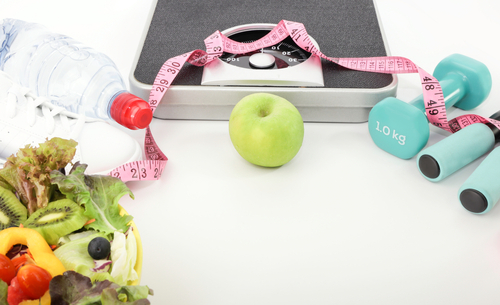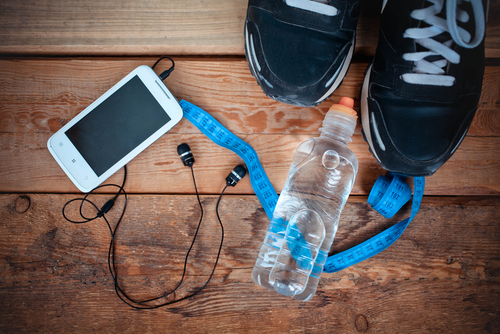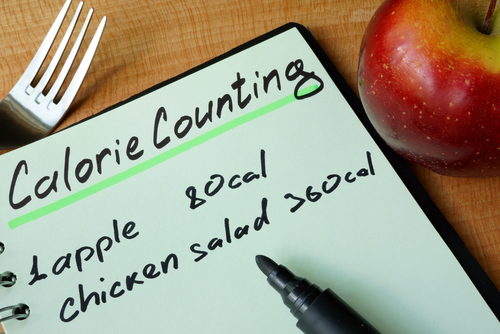7 Tips to Boost Your Weight Loss
Many Americans are eager to lose weight and in fact, many are distressed about their current situation. Unfortunately, many turn to supplements for quick fixes to lose weight. However, weight loss supplements don’t work…period. Americans spend billions of dollars on products that don’t work, may be harmful, and could have side effects. No one should expect a “magic pill” when it comes to weight loss. If you are looking for “non-traditional” ways to lose weight, then look no further. These tips are proven ways to shed pounds without cutting calories or going to the gym, plus they are not harmful like supplements can be.
Rearrange Your Food
The more we reorganize each day around healthy food options, the easier it is to sidestep temptation. Keep fruits and veggies in plain sight at all times. Keep convenient, ready-to-eat foods in the front of the refrigerator and the unhealthy foods stored in the back. Out of sight, out of mind. Research has shown, keeping a fruit basket on the kitchen counter encourages eating fruit when a sweet tooth strikes. The truth is we're triggered to eat by the sight of food. So it just makes sense to put the food you should be eating in clear view. Put that candy dish away and set out the fresh fruit, unsalted nuts, and other healthy foods in its place.
Choose Red Plates
The color of your dinner plates may actually help you eat less. Yep, it’s true! That’s the conclusion from a study published in the journal Appetite. For the study, researchers gave 240 participants snacks of popcorn and chocolate chips served on red, white, or blue plates. And it turns out that those who munched popcorn or chocolate chips off red plates ate less overall than those who ate the snacks off white or blue plates. Researchers proposed that many of us associate the color red with stopping or caution, which may help encourage eating less of anything that is served on that color.
Drink Water Before Every Meal
Thirst and hunger are hard to tell apart. Many times when we reach for food, it is really just because we are somewhat dehydrated. Drinking a glass of water before each meal -- including breakfast -- can prevent dehydration, which allows us to better navigate hunger and satiety signals.
Water is the most abundant substance in the body, accounting for up to 75 percent of body weight. Water serves many important roles in our bodies and losing even a small percentage of body fluid can lead to a drop in energy levels, weakness, poor mood, and physical performance. To determine how much fluid you should be aiming for each day, take your body weight and divide it in half. This is the number of ounces you should strive for daily.
Go to Bed Earlier
Lack of sleep is a huge willpower killer. You’re more likely to overeat, crave foods high in sugar, and not exercise when you don’t get enough winks! Make every effort to get 7-8 hours of sleep every night and if that’s not possible, sneak in a nap throughout the day. Sleep deprivation creates havoc with your appetite regulation. Ghrelin, the hormone that promotes hunger increases, and leptin, the hormone that suppresses appetite decreases when you do not get enough shut-eye. Getting enough sleep helps to regulate hunger hormones and aids in weight loss efforts.
Keep a Food Diary
Even if you are not consciously cutting calories or making healthy food choices, a food diary may still help keep your eating in check. Food diaries or tracking apps help keep us accountable and can help get anyone to their weight loss goals or through a plateau. Many people keep a journal handy and write down everything. Even if you write it down on scrap paper and throw it away, the act of writing it down is about being accountable to you and is a very effective tool for weight loss. Keeping track of emotions while eating is also important. Were you angry, sad, or bored? We often focus so much on foods and calories, but our emotions are a huge part of our eating habits. If you make a connection between your emotions and overeating, counseling can be a big help to handling those feelings.
Check Body Weight Frequently
Frequent weighing is an integral part of successful weight loss maintenance. Monitoring weight regularly is a form of accountability and self-monitoring, and consistent self-monitoring is associated with improved weight loss maintenance. Weigh yourself 1-2 times a week, and be consistent with the time of day and what you are wearing when you hop on the scale. And don’t forget to celebrate your progress with non-food rewards! Remember, that it is natural for your weight to fluctuate and also take into account all of the non-scale outcomes of making a healthy change, such as increased energy, better sleep, less pain, etc.
Be careful though! Weighing yourself obsessively or getting so focused on the number can lead to other problems. By weighing only 1-2 times per week, it allows you to accept some normal fluctuation while still having a general idea of where your progress lies. For some people, getting on the scale can be triggering and lead to feelings of poor self-worth or failure. If you find the bathroom scale unhealthy for you, by no means do you have to weigh yourself every week. Use past experiences and what you know about yourself and make a decision. It is perfectly fine, to just focus on non-scale successes and other factors to know you are on the right path.
Limit Television and Other Screen Time
Most people who have lost weight and maintained that weight loss have reduced their screen time. The national average time for watching television is 28 hours per week, or four hours per day, for the average American adult. The average screen time for children is even worse! According to the Kaiser Family Foundation, kids ages 8-18 spend on average 7.5 hours in front of a screen each day with 4.5 hours spent watching television. This is a tremendous amount of time people spend engaged in sedentary activity – and that does not account for computer, work, or school time either. Harvard T.H. Chan School of Public Health reports that extensive research proves a connection between TV watching and obesity among children and adults in countries around the world. Experts recommend removing screens from bedrooms, having meals without electronics, saving TV for the weekend instead of on weekdays, discussing as a family ways to limit screen time, enjoying physical activity after dinner such as taking a family walk or bike ride, and trying to add physical activity into screen time such as doing exercise during commercials or playing video games that encourage movement, like Just Dance.
In Conclusion…
As you can see, there are plenty of ways to rearrange your day that promote healthy eating and more importantly, healthy living. Losing weight doesn’t have to mean counting every calorie but instead, follow some practices that keep you conscious of daily eating habits and give your body enough rest to help control impulsive eating. These are best practices that don’t cost a cent instead of supplements that are expensive, dangerous, and have not been proven to be effective! Next time you are frustrated and considering supplements, remember that when it sounds too good to be true, it usually is!
Losing weight is not as always cut and dry as it may seem. Not properly structuring your diet and poor planning could lead to potential drawbacks that see you gaining more weight, or not getting proper nutrients.
Looking for a great menu that helps you lose weight and feel great at the same time? Look no further than Seattle Sutton! With 35 years of proven results, Seattle Sutton's Healthy Eating prepares tens of thousands of healthy, delicious meals weekly and its innovative approach has helped thousands of people achieve and maintain weight loss without planning, shopping or cooking for themselves.
Check out our healthy menus today!












 Weight Loss
Weight Loss Health & Wellness
Health & Wellness Diabetes
Diabetes Heart Health
Heart Health Motherhood & Family
Motherhood & Family Dietary Restriction
Dietary Restriction Other Health Conditions
Other Health Conditions About SSHE
About SSHE


